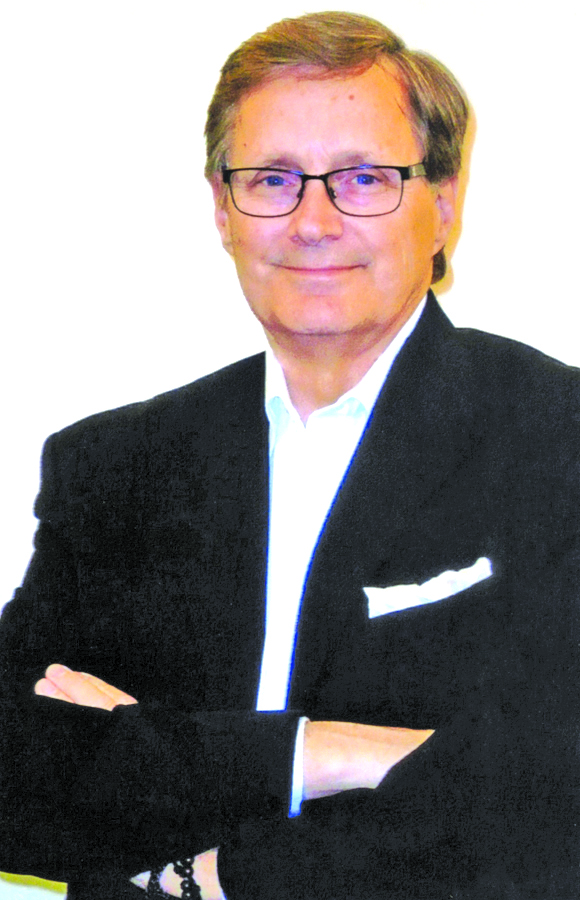“Politicians and diapers must be changed often, and for the same reason.” – Mark Twain
Hard as we try, apparently not much has changed since folklorist Samuel Clemens, better known as Mark Twain, entertained the masses with his philosophical wit over a century ago.
Since the founding of our amazing republic, politicians who presumptively win the trust of citizens by being elected to office, somehow always seem to forget from whom they receive the massive authority to govern.
On these pages, I often write about the ongoing struggle between the local governments and those being governed, but I was struck by how similar our story and of people around the nation.
As a member of the Orange County Press Club, we are routinely asked to judge the journalism of other press clubs, and this week I agreed to judge the editorial and opinion entrants to the Idaho Press Association’s annual contest.
For a moment, I thought I could have been reading the pages of this newspaper or any other in Southern California, or for that matter, perhaps Anytown, USA.
“Houston, we have a problem.”
Granted, it was not all negative, because it was not.
The editorial writers at Boise Weekly, Sandpoint Reader, Idaho Mountain Express and many others were all spot on covering their local issues.
There was a fantastic editorial about U.S. Senator John Fetterman’s courage to go public with his mental health crisis, giving hope to millions across the country suffering silently with similar issues.
And there was humor as well, as Moscow Idaho columnist Tara Roberts wrote about a debate with her son about the use of the word “funner” since being added to the dictionary. “But it’s not a word,” he said.
“Sure it is,” I said. “Little kids say it all the time. And you know exactly what it means.” We stared at each other, aghast: I was raising a pedant, he was being raised by a ridiculous woman.”
Language, she argued, “should be where humans are at our very best. It allows us to be silly and weird and creative and adventurous. It’s where we can experiment with a word or idea that seems bizarre at first, then spreads through communities and cultures, connecting people through the joy and magic of writing something and having someone else walk away understanding it.”
“Let go of the rules,” I tell my son. “It’ll be a whole lot funner if you do.”
Most, however, focused on deeper issues facing America.
According to the Boise Weekly’s capital columnist, Kate Jacobson, “misinformation is quite possibly society’s, or at least America’s, main downfall; and as technology and social media become more and more ever present in our lives, so does misinformation.
With campaign season upon us, the first using artificial intelligence and deep fake technology, this will only grow worse.
The editorial board of the Idaho Mountain Express worries about the legislature debating the potential of armed local militias and editorialized about a local school board who has invited citizens to comment about public policy in secret.
It’s a bit incongruent, at least seemingly so, as the surveillance state of algorithmic America makes individual privacy coveted, if inexistent, as government’s everywhere grow more secretive inch by inch.
Transparency, a huge issue in California, is apparently a huge issue everywhere, at least in Idaho.
Perhaps the most salient and thought-provoking threat to social transparency piece came from Zach Hagadone of the Sandpoint Reader. He wonders what will come of state’s government empowerment of certain people, namely, the Attorney General, to decide what books citizens should be able to see.
“The current “debate” over “obscene” or “inappropriate” or “pornographic” materials in libraries is the essence of bad faith. It is no “debate,” it’s a baseless moral panic ginned up by the same kind of authoritarians and fanatics who have hid their obsession with social control behind a mask of piety or patriotism — or both — since they put the Great Library to the torch and ensured the Western world would spend the next 1,300 years trying to relearn most of what it had already known,” he wrote.
“Make no mistake about it. This issue is not about pornography in libraries. It is about using legal intimidation to advance divisive ‘culture wars’ for political gain and control, especially within the majority party,” he concludes.
By my reckoning, among the greatest crimes and tragedies in human history were the repeated assaults on the Great Library of Alexandria by a succession of imperialists and religious zealots of various stripes until its final demise in the first centuries of the Common Era.
We probably wouldn’t have needed to have a Renaissance if the ancient accumulation and preservation of text-based knowledge — which is known to have begun as early as 3400 BCE, almost immediately as writing was being developed — hadn’t been dispersed or outright erased by political tyrants and religious bigots,” writes Hagadone.
Politicians, it seems, will always frankly be, politicians. Not all of them, of course, there are those who somehow remain true to the public interest.
Far too many in California, Idaho and elsewhere, however, have long since seem to have forgotten the citizens themselves who honorably gave them power in the first place.
We can only hope that brave citizens, here and there, continue to stand up, speak up and fight for what’s right.
Too often, politicians act in their own interest, like approving districts on a motion involving a last-minute switch to zoning maps and then refusing even to reopen the public hearing, do little but discourage civic engagement.
Maybe, old Mark Twain was on to something.

